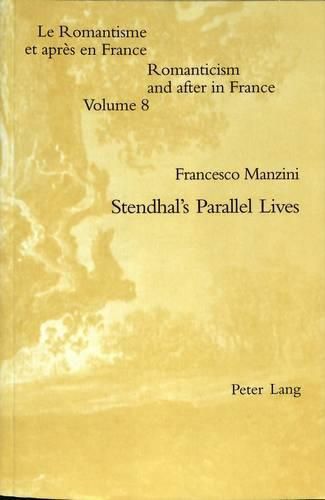Readings Newsletter
Become a Readings Member to make your shopping experience even easier.
Sign in or sign up for free!
You’re not far away from qualifying for FREE standard shipping within Australia
You’ve qualified for FREE standard shipping within Australia
The cart is loading…






This book deals with the important and hitherto neglected relationship between the works of Stendhal and Plutarch’s Parallel Lives. Stendhal’s readings of Plutarch are shown to inform his literary representations of Revolution and Empire, Restoration and Orleanism, as well as his theorizations of Romanticism. In particular, the Plutarchan concept of Parallel Lives is used to analyse one of the major themes of Stendhal’s writing: the self-construction of individual identity, whether (auto)biographical or fictional, by means of the emulation (as distinct from the imitation) of heroic exemplars. As a consequence, the balance between irony and idealism often identified by critics in Stendhal’s work is shown rather to be an imbalance, weighted in favour of an idealism derived from Plutarchan conceptions of heroism, particularly as they are represented in the Lives of Julius Caesar and Marcus Brutus.
$9.00 standard shipping within Australia
FREE standard shipping within Australia for orders over $100.00
Express & International shipping calculated at checkout
This book deals with the important and hitherto neglected relationship between the works of Stendhal and Plutarch’s Parallel Lives. Stendhal’s readings of Plutarch are shown to inform his literary representations of Revolution and Empire, Restoration and Orleanism, as well as his theorizations of Romanticism. In particular, the Plutarchan concept of Parallel Lives is used to analyse one of the major themes of Stendhal’s writing: the self-construction of individual identity, whether (auto)biographical or fictional, by means of the emulation (as distinct from the imitation) of heroic exemplars. As a consequence, the balance between irony and idealism often identified by critics in Stendhal’s work is shown rather to be an imbalance, weighted in favour of an idealism derived from Plutarchan conceptions of heroism, particularly as they are represented in the Lives of Julius Caesar and Marcus Brutus.